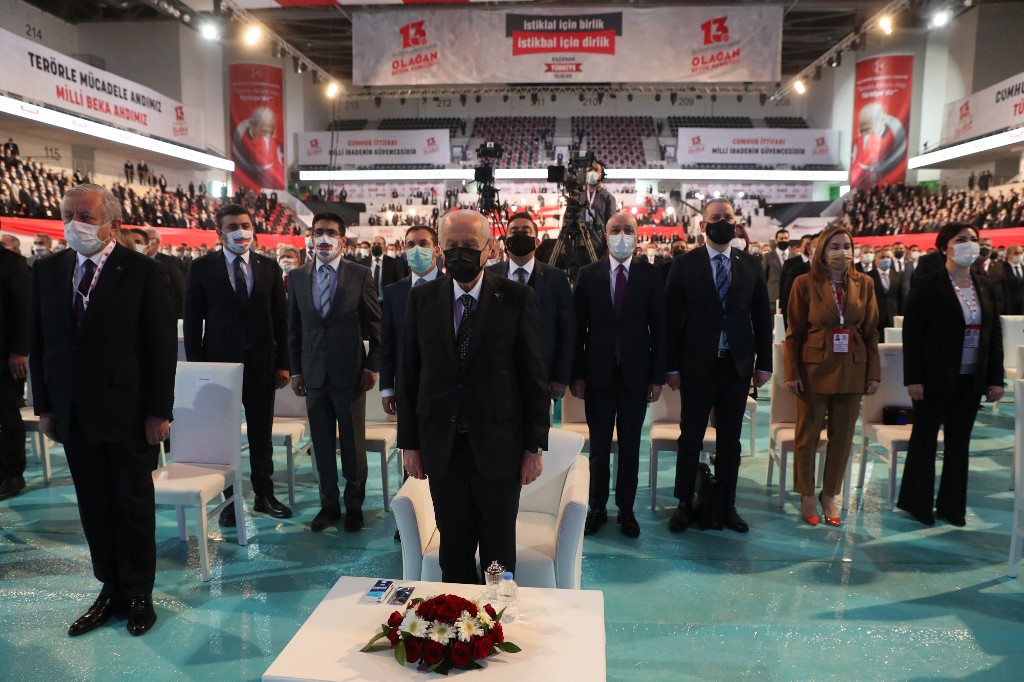Delegates from Turkey’s far-right Nationalist Movement Party (MHP) re-elected the party’s current leader, Devlet Bahçeli, as chairman in an uncontested election, Turkish media reported on Thursday.
Bahçeli garnered 1,277 votes from around 1,400 party delegates. The far-right politician has had a firm grip over the party since its founding leader, Alparslan Türkeş, passed away in 1997.
The MHP would have had a nationwide vote of around 6.8 percent if a general election were to have been held in March, according to a recent public opinion survey conducted by İstanbul Economy Research.
Turkey has a 10 percent election threshold, which means a party needs to receive at least 10 percent of the national vote in a general election for the opportunity to be represented in parliament.
According to the survey results, which were announced by Eurasia Public Research Center (AKAM) President Kemal Özkiraz from his YouTube channel, the Justice and Development Party (AKP), which has been ruling Turkey as a single-party government since 2002, would have received 29 percent of the vote in a March election.
According to the poll, the AKP, which is back on a downward trend after a brief surge during the early stages of the COVID-19 pandemic, was followed by the main opposition Republican People’s Party (CHP) at 18.2 percent and the nationalist opposition Good (İYİ) Party at 12.9 percent.
The pro-Kurdish Peoples’ Democratic Party (HDP) stood at 9.3 percent, while former AKP co-founder Ali Babacan’s DEVA garnered 2.0 percent and the Future Party (GP) – another political movement that broke away from the AKP and was founded by former prime minister Ahmet Davutoğlu – received 0.6 percent of the vote.
When undecided voters, who represented 13.8 percent, are distributed among the political parties, the AKP vote rises to 35.4 percent, while the MHP vote increases to 8.3 percent, which is still below Turkey’s election threshold.
The 10 percent threshold, which is much higher than those in democratic nations, has been the subject of criticism for many years for being anti-democratic and an obstacle barring small parties from entering parliament.
AKP Deputy Chairman Hayati Yazıcı announced during a live broadcast on CNN Türk on March 10 that the ruling party plans to reduce the election threshold to between 5 and 10 percent, a change that might allow the MHP to win seats in parliament without necessarily forming a combined front with AKP.

